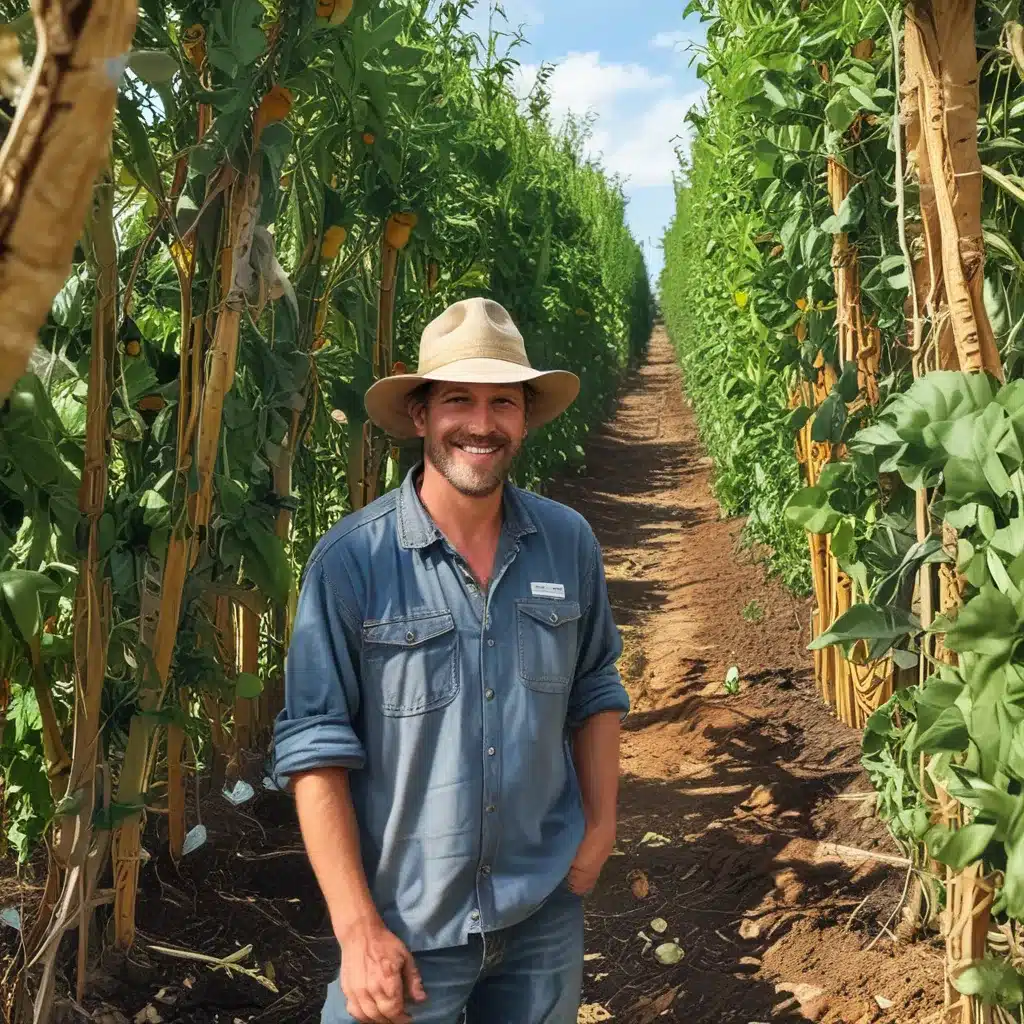
Weathering the Storm: Organic Farming’s Response to Climate Change
As I step out onto the sun-dappled fields of Thornapple CSA, the scent of freshly tilled soil and vibrant green foliage fills the air. It’s easy to get lost in the timeless rhythm of organic farming, but the reality is that this way of life is facing a monumental challenge: climate change.
Recent studies have painted a sobering picture. According to research published in Science Direct, global warming is already impacting the productivity and resilience of organic farming systems. From unpredictable weather patterns to shifting pest and disease dynamics, the very foundations of our sustainable food production are being tested.
But as I chat with the farmer, Anna, I see a glimmer of hope in her eyes. She’s not one to be easily discouraged. “We’ve weathered tough times before,” she says with a determined smile. “And we’ll do it again.”
Cultivating Resilience: Adapting Organic Practices
Anna’s words resonate with me, because I’ve seen firsthand how the community-supported agriculture (CSA) model at Thornapple has empowered farmers to adapt to changing conditions. It’s not just about yielding a bountiful harvest; it’s about fostering a resilient system that can withstand the challenges of our evolving climate.
One of the key strategies Anna and her team have employed is diversifying their crop selection. As research has shown, diversifying crop types can help mitigate the impacts of climate change on specialty crops, a vital component of organic farming. By growing a wider variety of fruits and vegetables, the CSA can better hedge against the unpredictable weather patterns that can devastate a single crop.
But it’s not just about what they grow; it’s also about how they grow it. Anna proudly showcases the farm’s regenerative techniques, which focus on building healthy, nutrient-rich soil. “When our soil is thriving, the plants are more resilient,” she explains. “They can better withstand drought, pests, and other stresses.”
Embracing Innovation: Technology-Aided Organic Farming
As we continue our tour of the farm, I’m struck by the seamless integration of old-world wisdom and cutting-edge technology. Anna points to a series of soil moisture sensors that are connected to a central monitoring system. “These help us optimize our irrigation and conserve water, especially during dry spells,” she says.
But the innovations go beyond just water management. The team at Thornapple has also embraced precision farming techniques, using GPS-guided tractors and drones to precisely apply organic fertilizers and monitor crop health. “It’s not about replacing our hands-on approach,” Anna clarifies. “It’s about enhancing it, so we can be even more responsive to the needs of our plants and the land.”
Research has shown that this type of technology-aided organic farming can indeed help improve yields and resource efficiency, all while maintaining the principles of sustainable agriculture.
Cultivating Community: The Power of CSAs
As I listen to Anna, I can’t help but be inspired by the way the CSA model has empowered Thornapple to adapt to the changing climate. It’s not just about the farm itself, but the entire community that supports it.
“Our members are more than just customers,” Anna explains. “They’re partners in this journey. They understand the challenges we face, and they’re willing to work with us to find solutions.”
This sense of community is crucial, especially when it comes to weathering the storms of climate change. By sharing the risks and rewards, the CSA model creates a resilient system that can weather even the most unpredictable conditions.
Sowing the Seeds of the Future
As I prepare to leave Thornapple, I can’t help but feel a renewed sense of optimism. While the challenges posed by climate change are daunting, the dedication and innovation I’ve witnessed here give me hope.
“We’re not just growing crops,” Anna says, her eyes sparkling with passion. “We’re growing a future where organic farming can thrive, no matter what Mother Nature throws our way.”
It’s a future that will require hard work, creativity, and a deep connection to the land. But if the team at Thornapple is any indication, organic farmers are more than up to the task. They’re redefining the harvest, one resilient crop at a time.



